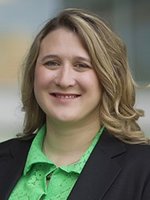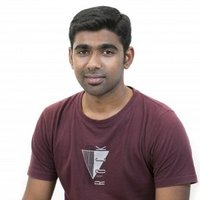Activities
Aarhus Genome Center - iSEQ seminar series on Precision Medicine
Wednesday 9 May 2018 at 14.00 – 15.00

Speaker:
Katherine A Hoadley, PhD, Assistant professor in Cancer Genetics at UNC-Chapel Hill.
Title:
The Cancer Genome Atlas – PanCancer Molecular Classifications.
Abstract:
The Cancer Genome Atlas has culminated over a decade of work characterization over 11,000 tumors from 33 different tumor types in a large scale, multidimensional data analysis called the PanCancer Atlas. This multi-institutional project resulted in 26 papers under three main themes – Cell of Origin, Oncogenic Processes, and Signaling Pathways.
In the Cell of Origin marker paper, we explored the molecular classification of samples by chromosome arm level aneuploidy, DNA methylation, mRNA, miRNA, and protein data. Integrative clustering approaches identified groups of samples with shared molecular characteristics and identified diversity within tumor types and similarities that cross tumor types.
This work provided support for additional analyses looking at pan-organ systems including pan-gynecological, pan-gastrointestinal, pan-kidney, pan-squamous, and stemness.
Reference:
Cell-of-Origin Patterns Dominate the Molecular Classification of 10,000 Tumors from 33 Types of Cancer.
Hoadley KA, Yau C, Hinoue T, Wolf DM, Lazar AJ, Drill E, Shen R, Taylor AM, Cherniack AD, Thorsson V, Akbani R, Bowlby R, Wong CK, Wiznerowicz M, Sanchez-Vega F, Robertson AG, Schneider BG, Lawrence MS, Noushmehr H, Malta TM; Cancer Genome Atlas Network, Stuart JM, Benz CC, Laird PW.
Cell. 2018 Apr 5;173(2):291-304.e6. doi: 10.1016/j.cell.2018.03.022.
Link to website:
https://unclineberger.org/people/profiles/katherine-hoadley
Venue: Eduard Biermann Auditory, The Lakeside Theatres, Bartholins Allé 3, Aarhus University.
Thursday 24 May 2018 at 11.00 - 12.00

Speaker:
Sabarinathan Radhakrishnan, Institute for Research in Biomedicine (IRB), Barcelona, Spain.
Talk:
Landscape of mutational processes and driver mutations in human cancers.
Abstract:
Cancer is caused by genetic mutations, often referred to as “drivers”, that confer selective growth advantage to malignant cells. However, the identification of driver mutations in sequenced cancer genomes is challenging and requires a detailed understanding of the underlying mutational processes (i.e., how somatic mutations are accumulated and distributed in the genome of cancer cells during their development), especially in functionally crucial regions such as in genes and regulatory regions. In this talk, I will present our recent findings on how DNA-binding regulatory proteins (like transcription factors), and the chromatin structure of exons and introns in genic regions influence the local somatic mutation rate in the cancer genomes [1, 2]. These findings have important implications for the understanding of mutational and DNA repair processes, as well as for the identification of cancer driver mutations. Furthermore, in the last part of the talk, I will present our current work on the analysis of whole genomes of 2,500 tumors from 37 types of cancer to identify the landscape of coding and non-coding driver mutations in each patient’s tumor. This study reveals that genomic events are at the root of virtually all tumors (with each carrying on average 4.6 driver mutations), and importantly most individual tumors harbor a unique combination of driver mutations.
Biosketch:
Sabarinathan Radhakrishnan is a post-doctoral researcher in the group of Prof. Nuria Lopez-Bigas at the Institute for Research in Biomedicine (IRB), Barcelona, Spain. He obtained his PhD from the University of Copenhagen (Denmark) in 2014. Prior to that, he studied Bioinformatics and then worked as a research assistant at the Indian Institute of Science, Bangalore, India.
References:
1) Sabarinathan, R., Mularoni, L., Deu-Pons, J., Gonzalez-Perez, A., & Lopez-Bigas, N. Nucleotide excision repair is impaired by binding of transcription factors to DNA. Nature, 532:264-267, 2016.
2) Frigola, J., Sabarinathan, R., Mularoni, L., Munios, F., Gonzalez-Perez, A., & Lopez-Bigas, N. Reduced mutation rate in exons due to differential mismatch repair. Nature Genetics, 49:1684-1692, 2017.
Venue:
Auditorium F, Building 1534, room 125, Ny Munkegade, 8000 Aarhus C.
Refreshments:
It is possible to sign-up for a free sandwich after the talk, by sending an email to Anne Hedemand (anne@biomed.au.dk).
Please note the deadline for sandwich sign-up is Tuesday 22 May 2018.